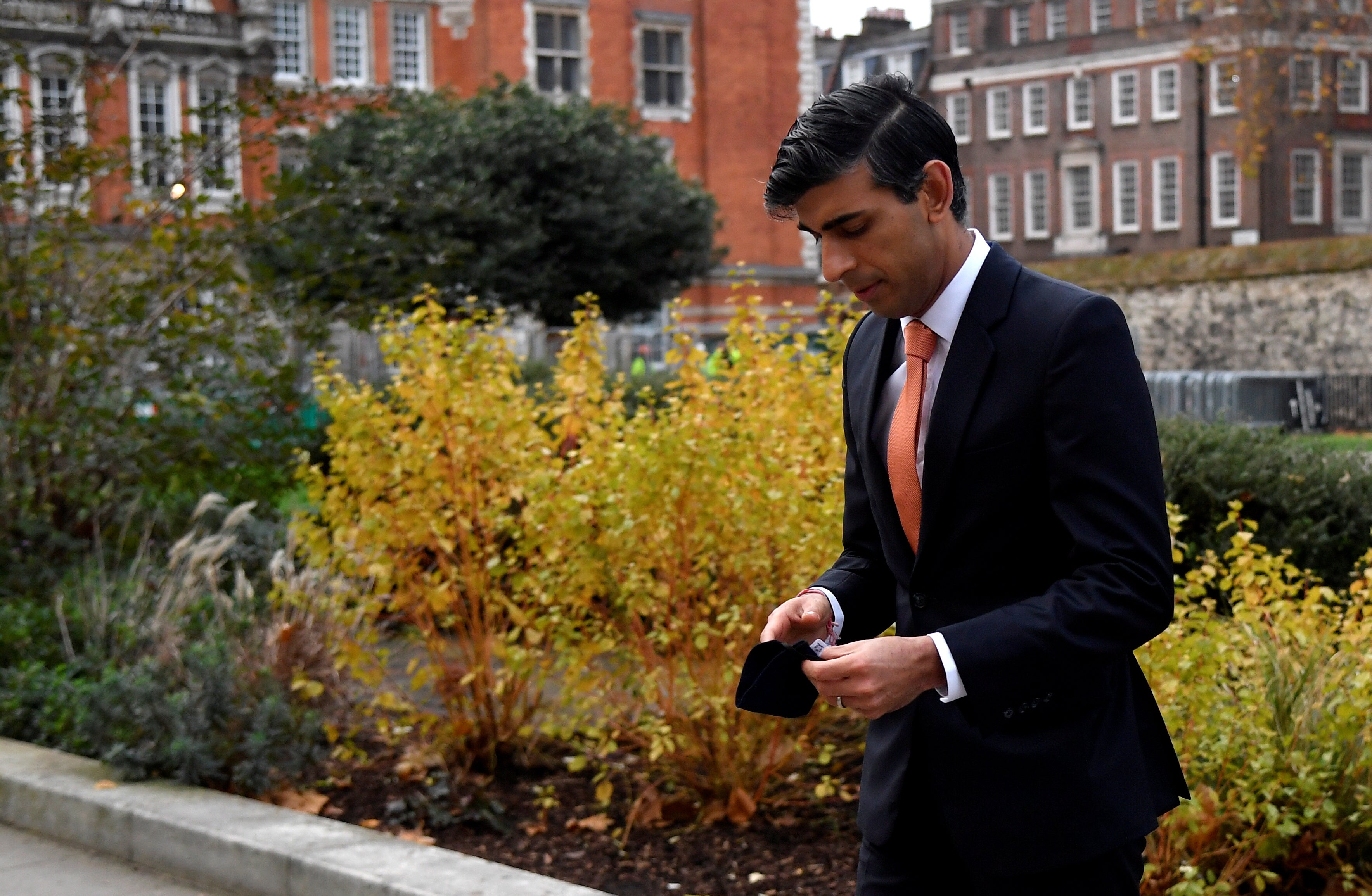Is Matt Hancock a better friend to the economy than Rishi Sunak?
As the pandemic continues to wreak havoc, ministers who have argued for stronger measures against it may actually be the economy’s best hope, writes James Moore


Does Rishi Sunak deserve his glowing reputation for economic competence?
If the reports putting him among the “economy first” group of ministers in cabinet are true – and they come from reliable sources – then it’s highly questionable.
Throughout the course of the pandemic, this group has argued in cabinet for things like the early lifting of restrictions in the summer, and against a two-week autumn “circuit breaker” that might have stopped the second wave in its track as it was getting going.
Of course, the economy is Sunak’s brief; he is supposed to make the case for it. But here’s the thing: much as it pains me to say it, its strongest champion in government may actually be the health secretary, Matt Hancock, who is the man on the other side of this particular debate.
That’s because every time the government has tried to help the economy by taking its foot off the gas of Covid restrictions, the decision has blown up in its face.
The biggest problem with the virus is obviously that it’s killing a horribly large number of Britons. The most serious consequence of delaying the first lockdown, of lifting the restrictions too early in the summer and of opening the door to the second wave by failing to break the circuit is that people died as a result.
Those mistakes ultimately harmed the economy too. It’s been a case of lockdown, then lift, then lockdown, then lift, then lockdown. Such a stop-start approach is the worst possible outcome for businesses trying to operate in a pandemic-stricken world.
Had the government followed a net-zero virus strategy in the summer, had it taken more pain upfront, we might not be in the current situation: London back in what amounts to a third lockdown as a new strain wreaks havoc, and Europe, already alienated by the British government’s posturing, slamming its doors shut.
The chief responsibility for all this clearly lies at the door of Boris Johnson. He’s the prime minister and the arbiter of such debates when they occur in the cabinet.
But Sunak’s role is still key and his status in the country has made him a powerful man indeed.
Whether that status is deserved has been further called into question by the House of Commons Public Accounts Committee (PAC), which has recently raised some pertinent issues over the schemes designed by the Treasury to keep businesses going and protect jobs.
The job retention scheme, the self-employment income support scheme, the various bounce-back loans for businesses, they played an important role in building Sunak’s reputation. His willingness to move fast and intervene in a very un-Tory like manner with them in the early days of the crisis drew rave reviews and rightly so.
The schemes have some notable gaps, however, which the PAC highlighted in a pair of recent reports, as I wrote in the last edition of this column. Some flaws are forgivable, given the commendable speed at which these initiatives were put together. What is not is the PAC’s finding that they’ve not been evaluated.
If Treasury civil servants have been at capacity dealing with the challenges that the government faces, including the self-created challenge of Brexit, the work could easily have been contracted out. There’s a wealth of expertise in the City of London that could have been called upon to consider their operation, suggest ways of filling in gaps, and come up with ideas for ironing out other problems (the danger of widespread fraud being one).
Then there was the story that appeared in The Telegraph of Sunak urging Britons to indulge in a spending spree with all the savings they’ve built up through staying at home, while saying he felt “good” about the economy.
This was at a Tory event and you could argue that he was simply geeing up the troops. But at a time when millions of people can’t afford to contemplate that sort of thing, because they’re losing jobs and businesses, it came across as more than a little tone deaf.
The chancellor is still among the government’s best performers. He’s a slick and polished operator. He’s good in the House of Commons and good on TV. The public likes him. That gives Sunak an unusual degree of leeway. Still, the case against him is mounting and creating some lines of attack for Labour if it can effectively exploit them.



Join our commenting forum
Join thought-provoking conversations, follow other Independent readers and see their replies
Comments